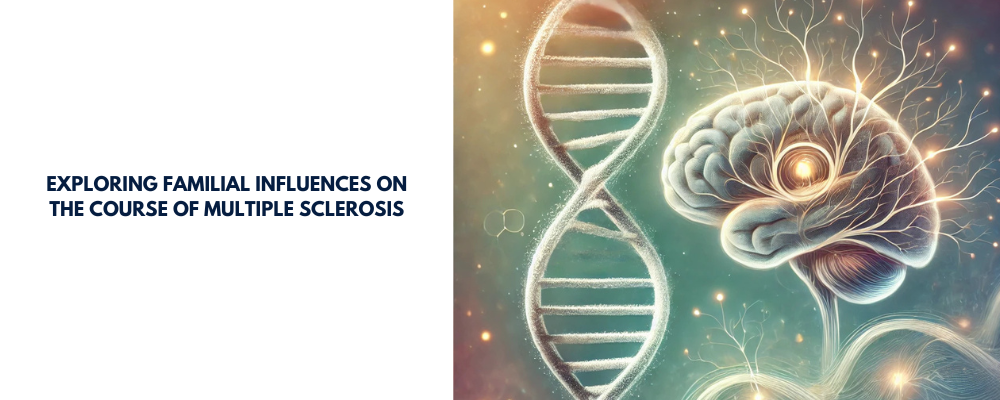Exploring Familial Influences on the Course of Multiple Sclerosis

The study “Familial effects on the clinical course of multiple sclerosis” by Hensiek et al., published in Neurology in 2007, explores the role of familial factors in shaping the clinical trajectory of multiple sclerosis (MS). While familial susceptibility to MS is well-documented, this research sought to determine whether these familial influences extend to the disease's natural history, including age of onset, progression, and severity.
Overview and Objective
MS is characterized by a heterogeneous clinical presentation, influenced by both genetic and environmental factors. This study analyzed 1,083 families with at least two affected first-degree relatives, comprising 2,310 individuals, to investigate intrafamilial concordance for age of onset, clinical course (e.g., relapsing-remitting, primary progressive, secondary progressive), and disease severity.
The central aim was to assess whether familial patterns could be linked to genetic predisposition or shared environmental exposure and whether these patterns could inform patient counseling and research design.
Key Findings
Concordance in Age of Onset:
Affected family members demonstrated significant concordance in the age of MS onset, particularly among siblings (correlation coefficient 0.15, p < 0.001). Parent-child pairs exhibited weaker but still notable concordance after adjustments (correlation coefficient 0.12, p = 0.03).
Concordance for the year of onset was observed in siblings (correlation coefficient 0.18, p < 0.001) but not parent-child pairs, suggesting a potential interplay of shared environmental factors during early life.
Clinical Course Concordance:
Sibling pairs showed significant concordance in clinical course (e.g., relapsing-remitting vs. progressive), while parent-child pairs did not.
This finding suggests familial factors influence the progression patterns of MS, particularly among siblings who share similar genetic and environmental backgrounds during development.
Disease Severity:
No significant intrafamilial concordance was found for disease severity, as measured by the Multiple Sclerosis Severity Score (MSSS).
This indicates that while familial factors may shape susceptibility and progression, they do not predict ultimate disability levels.
Lack of Evidence for Anticipation:
The study found no evidence of genetic anticipation, where younger generations experience earlier onset or more severe disease.
Genetic vs. Environmental Contributions:
Concordance in siblings for both age of onset and clinical course suggests a shared genetic basis. However, environmental factors, particularly those affecting siblings during childhood, might also play a role.
Methodology
The researchers utilized the Genetic Analysis of MS in Europeans (GAMES) dataset, a multi-national cohort. They applied statistical methods like kappa statistics and intraclass correlation coefficients to measure concordance. Confounders such as gender, year of birth, and disease duration were adjusted in the analysis.
Clinical Implications
The results are particularly relevant for patient counseling:
While family history can inform susceptibility and potential disease progression patterns, it does not provide definitive predictions about disease severity.
Patients should be reassured that severe disease in a relative does not necessarily mean the same outcome for them.
Moreover, the findings suggest that future genetic studies in MS should focus on clinical course stratification rather than severity. This could help identify genetic factors specifically linked to disease progression or resistance to neurodegeneration.
Research Implications
This study underscores the importance of large, multi-generational datasets in studying MS. While familial clustering of certain traits points to genetic contributions, the role of shared environmental exposures remains an area for further investigation. These findings also align with the hypothesis that MS represents a spectrum of phenotypes, with familial factors influencing the balance between inflammatory and degenerative components of the disease.
Conclusion
Hensiek et al.'s research highlights the nuanced role of familial factors in MS. While they influence susceptibility and disease progression patterns, they do not significantly impact disease severity. These insights advance our understanding of MS's complex pathogenesis and inform strategies for genetic research and patient management.
Reference:
Hensiek, A. E., Seaman, S. R., Barcellos, L. F., Oturai, A., Eraksoi, M., Cocco, E., ... & Compston, D. A. S. (2007). Familial effects on the clinical course of multiple sclerosis. Neurology, 68(5), 376-383.
